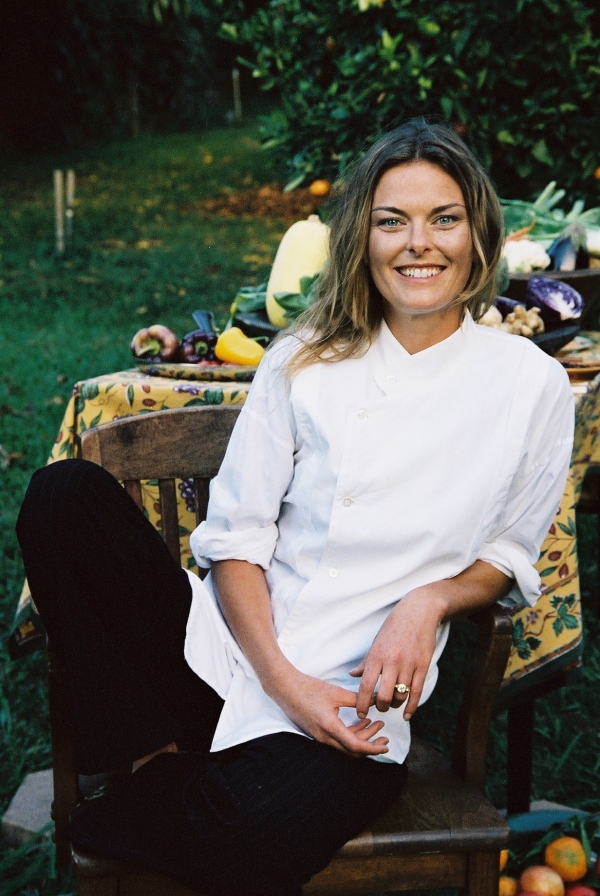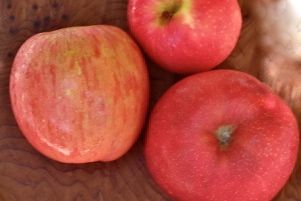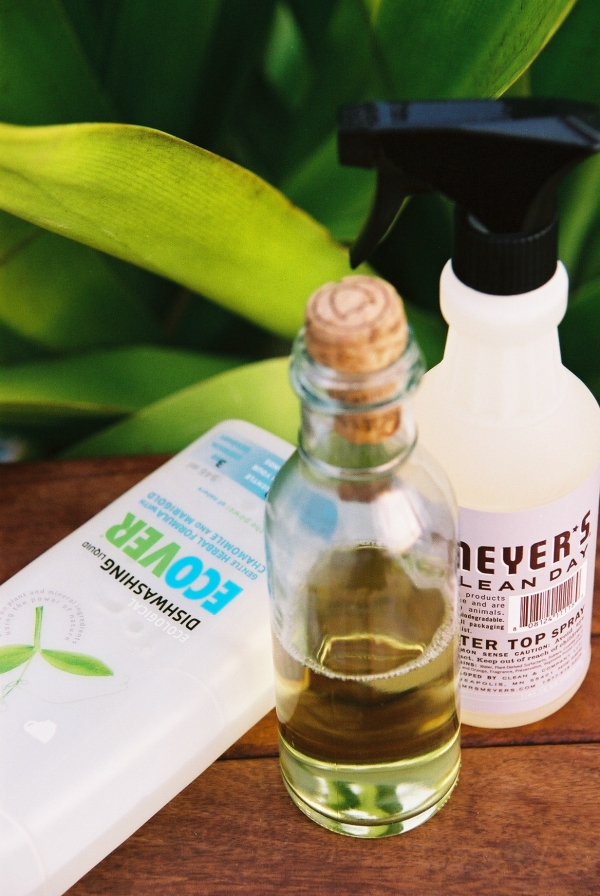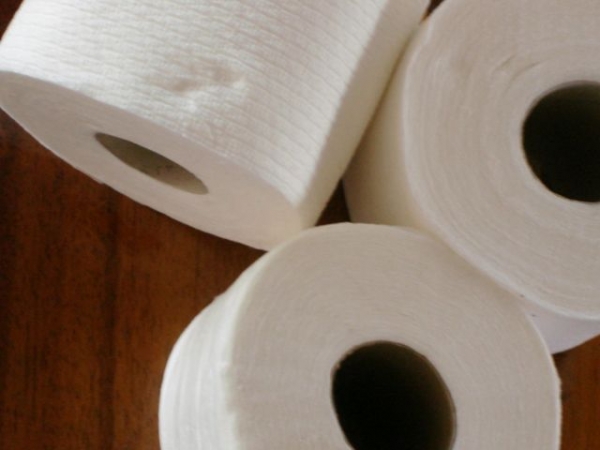TODAY Show - Give your kitchen and diet an organic makeover, with Renee Loux
Renée Loux, green expert and author of "The Balanced Plate", shares eco-friendly advice for your home and shares a delicious recipe for organic apple cobbler
Click HERE to view Today Show segment
Being green and organic food are big buzz words today, but everyone wants to know what's the best and easiest ways to make both of these part of our day-to-day
Two reasons to go organic:
It tastes better: One of the standards of organically grown food is keeping soil healthy and fortifying it naturally, not with synthetic fertilizers. Healthy, fortified soil means healthy, strong plants, which translates to better-tasting food.
More nutrients: Healthy soil of organic farmland also provides more nutrients for growing plants. I've looked at studies comparing nutrients in some conventional versus organic foods that show that there are more nutrients in organically grown food. They have more vitamins and minerals, like vitamin C and iron.
So, there are clear benefits of going organic, especially if the cost of some organic foods is a little more expensive. You get more for your money in terms of taste and nutrition.
Three 'green' basics
The “green” wave is upon us and it’s never been easier with a few tricks and tools and some of the great products that are now widely available, especially in the kitchen. It doesn’t have to be an all or nothing game. It can be something that you can phase in to make a huge difference down the road. There are a few simple things everyone can do at home to be "green,” particularly when choosing things that we do on a day-to-day basis like non-toxic cleaning products, starting with products like dish soap.
1. Nontoxic, natural cleaning products
Biodegradable dish soap and detergent: Consider natural dish soap (which is plant-based and biodegradable) instead of a synthetic soap (which ends up causing harmful imbalance in the ecosystem).
Dish soap:
Seventh Generation Liquid Dish Soap, Lavender (25 fl. oz.)
Dish detergent (automatic machine):
Seventh Generation Automatic Dishwashing Powder, Free & Clear (Unscented, 45 oz.)
All-purpose cleaner and glass cleaner: For surfaces, floors and counters, look for an eco-friendly product that doesn't contain chemical solvents or colorants. When we talk about something being biodegradable, it's not just outside in the environment or in the water eco-system, it's also inside our homes - chemical cleaning products build up inside, too. Using biodegradable, eco-friendly cleaning products improves indoor air quality and the general quality of life at home.
All-purpose surface cleaners:
Seventh Generation Kitchen Cleaner, Wild Orange & Spice
Seventh Generation All Purpose Cleaner, Green Mandarin & Leaf
2. Recycled paper products, paper towels for the kitchen
The higher the recycled content, the better. Look for paper products that have been bleached without chlorine, since products bleached with chlorine create some very harmful byproducts like dioxins. Dioxins are very nasty chemicals that don't biodegrade and actually accumulate in the environment and our bodies.
Coffee filters: Look for recycled coffee filters that are naturally bleached (or not bleached at all) and avoid chlorine residue for a better cup of coffee.
Recycled paper products:
Seventh Generation Paper Towels, whitened without chlorine
3. Organic food - no chemical pesticides or fertilizers
The best is locally grown, seasonal food (which means it doesn't require a lot of fuel and energy to travel). This time of year that means apples, pears, squashes, pumpkins, walnuts, pomegranates - since we have to eat several times a day, it's a great opportunity to make a choice that is better for us, our kids and the planet.
What Foods are most important to buy organic
Everyone is talking about organic food - it's become a household word and it's on the shelves of most grocery stores - but everyone wants to know if it's really better for us, why and which foods are most important to buy organic.
-
Berries and soft skinned fruits like grapes, peaches, and plums
-
Tomatoes
-
Apples
-
Dairy products
-
Potatoes
-
Lettuce and spinach
-
Celery
-
Coffee - also go for Fair-Trade beans!
-
Chocolate, oh yes
Renée Loux's Apple cobbler
8-10 servings
INGREDIENTS
Topping:
1 cup pecans
1 cup spelt flour or unbleached white flour
1-1/4 cup rolled oats
1/2 cup organic brown sugar or maple sugar
1 teaspoon ground cinnamon
1/4 teaspoon fine-ground sea salt
8 tablespoons grape seed oil
Apple compote:
4 cups apples, peeled and diced into 1/2-inch cubes
3 tablespoons maple syrup
2 tablespoons lemon juice
1 teaspoon fresh lemon zest
1 teaspoon vanilla extract
1 teaspoon ground cinnamon
1 tablespoon organic cornstarch
DIRECTIONS
Preheat over to 350 degrees F.
Cobbler topping:
In a food processor, grind 1/2 cup pecans, 1/2 cup flour and 1/2 cup oats into a coarse meal.
Add remaining pecans, flour and oats, brown sugar or maple sugar, cinnamon and salt and chop in a few pulses just to mix. Transfer to a bowl. Work oil into the pecan-flour mixture until pebbly.
Add more oil or a touch of water if it is too dry. Set aside.
Apple compote:
Peel and dice apples.
Mix together maple syrup, lemon juice, lemon zest, vanilla and cinnamon. Add cornstarch and mix until dissolved. Pour over apples and stir until well mixed.
Spread topping over fruit evenly. Bake 45-50 minutes or until golden brown and fruit is bubbling through.





